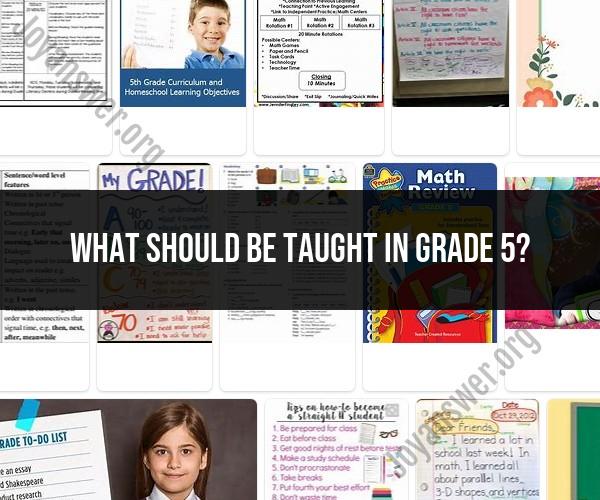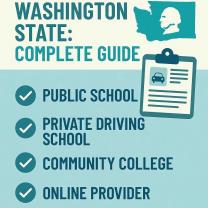What should be taught in grade 5?
The fifth-grade curriculum is designed to provide students with a well-rounded education that builds on foundational knowledge and prepares them for more advanced concepts. While curricula may vary by school district and location, here are the key subject areas and topics typically covered in fifth-grade education:
**1. Mathematics:
- Operations with whole numbers, fractions, and decimals
- Measurement and conversions
- Geometry, including angles, shapes, and coordinate grids
- Basic algebraic concepts, patterns, and functions
- Data analysis and probability
**2. English Language Arts (ELA):
- Reading and analyzing a variety of texts, including fiction, non-fiction, and poetry
- Developing reading comprehension skills, such as inference, summarization, and identifying main ideas
- Writing narratives, informative/explanatory texts, and opinion pieces
- Vocabulary development and understanding of figurative language
- Grammar, punctuation, and proper sentence structure
- Spelling and vocabulary enrichment
**3. Science:
- Physical science topics like matter, energy, and forces
- Earth science concepts such as geology, weather, and natural resources
- Life science topics including ecosystems, plants, animals, and human body systems
- Scientific inquiry skills, conducting experiments, and drawing conclusions
**4. Social Studies:
- American history, including the founding of the nation, early explorers, and colonization
- The Revolutionary War and the formation of the United States
- Geography, map skills, and understanding different regions
- Civics and government, including the Constitution and rights of citizens
- Basic economic concepts
**5. Health and Physical Education:
- Developing healthy habits, nutrition, and personal wellness
- Physical fitness, sports, and cooperative activities
- Safety and first aid
- Mental and emotional well-being
**6. Arts:
- Visual arts, exploring different mediums and techniques
- Music appreciation and basic musical skills
- Introduction to performing arts, drama, and theater
**7. Technology and Digital Literacy:
- Basic computer skills, including word processing, research, and presentations
- Internet safety and responsible online behavior
- Basic coding concepts
**8. Foreign Language (if applicable):
- Basic vocabulary and conversational skills in a foreign language
Remember that curriculum can vary based on state standards, school districts, and individual schools. Teachers and educators often adapt the curriculum to meet the needs of their students and provide a well-rounded educational experience.











